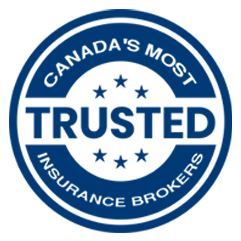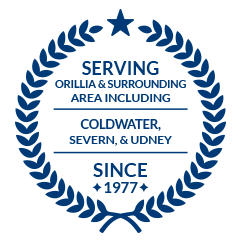7 Tips for Safe Boating
With the weather warming up and the days getting longer, many boaters in Ontario and abroad are anticipating the first day they’ll get to go back on the water. However, before you do so, it’s important to consider the various factors you can be accountable for when it comes to boating safely.
Boat safety is similar to safety regulations of many other forms of transportation such as cars or airplanes, but there are a few peculiarities that you’ll need to remember. In this article, we’ll discuss 7 tips that will help you stay safe and enjoy your time on your boat.
1. Pack safety equipment before you go boating
Before you can begin boating, it’s important to load all the necessary safety equipment for your trip. Many pieces of equipment are required by law for boaters to use their vessel, so knowing what’s required as safety equipment is crucial for your boating trip.
Your safety equipment will include things such as life jackets and personal floatation devices for each passenger, a first-aid kit, a buoyant heavy line, a sound or signalling device, a bail bucket, a waterproof flashlight, and a paddle or anchor in the event you need to guide your boat back to land manually. You might want to also pack handy items such as your cell phone, sunscreen, water, snacks, and dry clothing.
2. Wear your life jacket and make sure it fits
One risk associated with boating is, of course, drowning. Another problem many swimmers and boaters may experience is the risk of cold water immersion. Low temperatures in water make it difficult to move and swim to land, which can result in hypothermia, drowning, or other serious consequences.
For this reason, we recommend wearing an approved life jacket or personal flotation device that is form-fitting. Life jackets can prevent drowning in serious capsizing incidents, as well as improve your mobility in a cold water immersion situation.
Be sure to check the label of your life jacket to ensure it has been approved by Transport Canada, Fisheries & Oceans Canada, or the Canadian Coast Guard. It’s also essential to inspect your life jacket for wear, rips, or tears each time you wear it. As well, it’s good practice to replace life jackets every 5 years to avoid wear and possible injury from improper floatation equipment.
3. Have a valid boating license and follow the laws
Of course, any boater who is going to be hitting the water will need a valid and current Motorized Pleasure Craft Operator Card. This functions as a boating license for most Canadians, and understanding the laws around your license is critical to boating safely and preventing accidents.
You’ll also need to complete an accredited course offered by Transport Canada before being able to pilot your vessel. There is information available online for the course, as well as pre-requisite requirements and other important information related to your boating course and license.
4. Do not drink
This should go without saying, but drinking while boating is not only illegal but highly dangerous. Drinking while boating will cause you to lose your boating license temporarily, and you’ll incur similar consequences for drunk boating just as you had been driving a car while intoxicated.
Additionally, drinking while boating could result in a capsize, which can be fatal if you’re unable to escape the water and surface. Alcohol can further worsen this situation by slowing your reaction time and impairing your movement. Save your cool beers for when you get back to the pier, and keep yourself and other boaters safe.
5. Plan your boating trip
When you’re planning your trip, make sure you understand all the different aspects of your destination. Use nautical charts, know the routes you’ll be taking, fill out a trip preparation form with your boat’s make, year, name, and colour, and clearly outline your destinations, routes, and return time. We recommend that you include the names of everyone in your party in the event of an emergency.
We also advise keeping a cell phone on board, as it allows you to communicate for assistance in the event of an emergency or becoming stranded at sea. As well, it can be beneficial to notify park staff where you’ll be travelling if you’re taking a new or unfamiliar boating route. This can make rescue efforts easier for park staff, and in turn, help your boat get found before any injury or illness occurs.
6. Know your boat and how it functions
Part of boating safely is to understand your boat, its functions, and how to properly handle it when at sea. Since each vessel is different, it’s essential to keep track of things like rough water performance or weight distribution. If you’re driving your boat for the first time, we recommend using a familiar route and avoiding unknown waters on your first trip.
Once you’ve taken your boat out a few times on the water, you’ll begin to get the feel for your vehicle, which will make you a safer and more competent captain and allow you to explore new worlds with your purchase.
7. Don’t be afraid to ask questions
There are many Canadian organizations and governing bodies that can provide answers, resources, and support to those interested in boating. You can check with the Ontario Parks staff before boating, or you can contact Transportation Canada for clarity regarding specific laws and regulations around boating safety.
You can also explore online forums, websites, and other resources that can provide you with detailed, expert information about boating, specific routes, boat models and how they handle, and much more. By utilizing the internet, you can easily check off each item on your boat safety list and get to enjoy the water much sooner.
If you’re a boat owner in Ontario and you’re looking for insurance for your boat, you can contact Ron Johnston Insurance. We’ve helped our clients with a number of insurance coverages over the years, and our team will find the right fit for your boating insurance to keep you, your loved ones, and your vessel safe. You can call us at (705) 410-5519 or contact us online.
- Tips for Securing Affordable Cottage Insurance Rates in Ontario
- Cottage Insurance Essentials: Coverage Options Explained
- Understanding Liability Limits in Commercial General Liability Insurance
- How Do I Calculate Business Liability Insurance Needs?
- Is Product Liability Insurance Included in General Liability?
- April 2024
- March 2024
- February 2024
- January 2024
- December 2023
- November 2023
- October 2023
- September 2023
- August 2023
- July 2023
- June 2023
- May 2023
- April 2023
- March 2023
- February 2023
- January 2023
- November 2022
- October 2022
- September 2022
- August 2022
- July 2022
- June 2022
- May 2022
- November 2021
- January 2018
- December 2017
- November 2017
- October 2017
- September 2017
- August 2017
- July 2017
- May 2017
- April 2017


